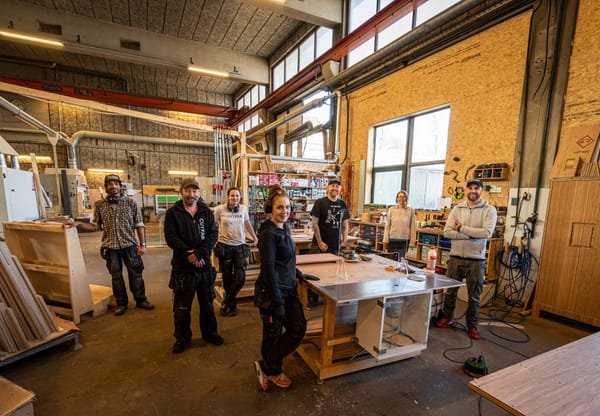Empowering Individuals: The Next Wave of AI-Native Apps
Going from broad appeal to hyper-personalized experiences

In today’s world, most of us interact with tools and products designed to cater to a broad audience. Think about it — the SaaS and mobile apps you use daily are virtually identical to what millions of others see and experience.
I personally worked on Office 365, the most adopted service and suite of products for business productivity, for seven years. I’ve been a staunch supporter of and believer in best-in-class products elegantly designed for particular needs (e.g. Notion, Linear, and Figma) for most of my career.
I strongly believe we are in the middle of a big transition, and so do OpenAI. In the distant (or not so distant) future, transient applications — those created in real-time by AI — will adapt to hyper-specific user needs and then disappear once their purpose is fulfilled.
The key to these transient applications is the integration of AI with real-time data, user preferences, and context awareness. They represent a shift from a one-size-fits-all software model to hyper-personalized, momentary digital experiences.
We’ve got some time to go between now and then, but the next generation of applications driven by AI could look quite close to that sci-fi future.
The Next Generation of AI-Driven Applications
While many equate the AI wave with basic chatbots or content generators, that’s just scratching the surface.
The true revolution lies in AI-native apps that place individuals at the epicenter, empowering them to achieve more than ever before.
A Glimpse Through the Lens of Screenwriters
Most of us are familiar with the recent Writers Guild of America strike. Among the myriad of concerns, writers were apprehensive about AI like ChatGPT replacing them.

What if we rightfully put the writer at the center of value creation instead?
Presently, writers lean on standardized tools like Final Draft — undoubtedly a powerhouse in screenwriting. Final Draft even uses the slogan “The Industry Standard Screenwriting Software.”
But imagine a world where tools morph to fit each writer’s unique style and vision, AI companions helping them not just as writers but even as business people. After all, they are the center of creativity for the shows we all know and love.
What could a set of tools for writers look like?
How about diving deep into the essence of the writing process by simulating it from start to finish? Imagine introducing AI sparring partners and editors at every important step. These AI entities wouldn’t just be passive tools; they’d be dynamic collaborators, possessing an intrinsic understanding of the writer’s unique preferences, the specifics of their current projects, and their vision of what true success means. Such a product could assist in idea generation, problem solving, copy editing, coherence (e.g. mitigating against plot holes), terminology, and more.
And why should we limit its capabilities to just the writing process? With tools for image and video generation, the workflow could expand into creating a pilot episode of the show. AI production artists, cinematographers, and directors would help the writer make their vision into a reality.
Finally moving into the most dreaded tasks of all — building a business. What about an AI agent that acts on the writer’s behalf? What if this digital agent could deal with selling scripts, getting meetings, and managing contracts? This would allow writers to channel their energy into what they truly excel at and enjoy: the art of storytelling.
Developers — The First to Change
Developers, are already embracing this shift. Devs love building for themselves, in the same way Hollywood loves making movies about itself 🤓 Their rapid adoption of AI tools is a hint of what’s to come for other roles and industries.
Some examples of personalized workflow tools and agents:
GitHub Copilot — Your AI pair programmer, the world’s most widely adopted AI developer tool.
DevGPT — DevGPT is an AI-powered developer that automates your backlog, saving you time and increasing productivity.
Sweep.dev — Sweep is an AI-powered developer that generates repository-level code at your command. Cut down your dev time on mundane tasks, like tests, documentation, and refactoring.
Databutton
At Databutton, we’re putting the person that dreams of building the next big product at the epicenter. We are busy crafting a game changing assistant to help you come up with killer ideas and build them. Interested? Try us out at www.databutton.com and let us know what you think on Discord.





